When Sonia Mukhtar signed up to work on the Access to Safe Water program through PepsiCo and WaterAid’s partnership with Pakistan Council of Research in Water Resources (PCRWR) as a Community Mobilizer, she was excited to be a part of change in
one of Karachi’s biggest neighborhoods.
“I wanted to do something good and be a part of bringing change and relief to people’s lives,” Sonia says in a telephonic interview, recounting her motivation behind her work ethic. “When the work started on the Access to Safe
Water program, I realized quickly how change would be difficult, but it would be worth it.”
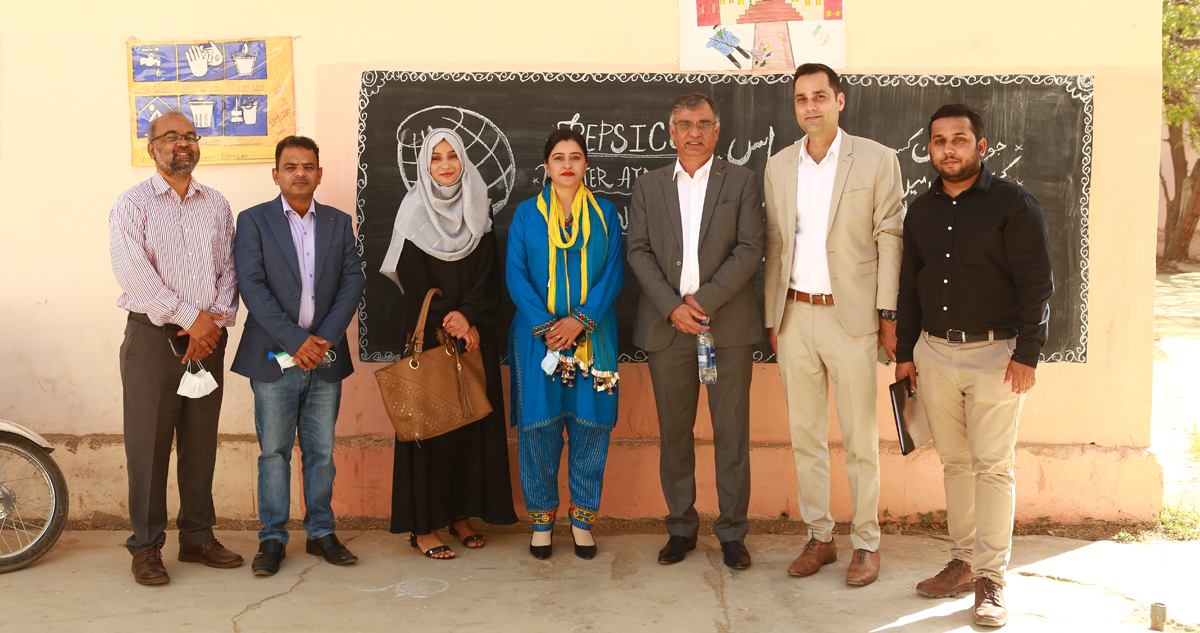
Sonia (third from left) with project partners from WaterAid, PepsiCo Pakistan and PCRWR.
The project was the installation of a mega Reverse Osmosis (RO) water filtration plant in Karachi’s Pak Colony that would be providing 50,000 gallons of filtered water each day to residents of the area.
“Access to Safe Water”, as it was titled, is a PepsiCo Foundation funded project being implemented in partnership with WaterAid in Pakistan, in Lahore, Islamabad and Karachi in its Urban iteration. It comes within the ambit of PepsiCo Foundation’s
commitment to supporting communities in their quest for safe water and has helped more than 59 million people globally gain access to safe water through various local partnerships.
A PepsiCo project that has empowered an activist to help 100,000 people.
Sonia joined the ranks of global changemakers who are diligently working in their communities to help people live better lives with safe water through PepsiCo’s support. She hails from a humble family where the support of her parents turned
her into a homegrown hero intent on serving the people around her.
Scarce Resources in a Mega City
Karachi, Pakistan’s largest city has millions of residents that struggle with water scarcity each day. It has become a commodity instead of a right, and even if it is available, there’s no guarantee of its purity.
“I heard unbelievable things as I interviewed community members when the program started rollout,” Sonia confesses. “The water contained hard materials and was so leaden with salt and chemicals that people didn’t even wish
to wash their clothes with it let along bathing babies and children! In some areas of the locality, sewerage water got mixed with the main water supply lines which created ailments and affected women and children the most.”
The contaminated water was also scarce, so people had to travel far to fill jerrycans with water from other sources and carry them back home for use. Still, it wasn’t always a guarantee that the water would be safe. This routine also affected
children’s school attendance as they were being made to collect and carry water too.
“I visited streets within the Colony daily and interacted with people with my team. When I told them that we were working on setting up a water filtration plant for them that they will have to keep running after the organizations leave, they
couldn’t believe it,” Sonia adds, recalling the initial days of her surveying and research. “The elderly, especially women, had tears in their eyes. You see, women stay and work at home the most so water is an even bigger necessity
for them. Imagine their happiness when they knew this would be happening.”
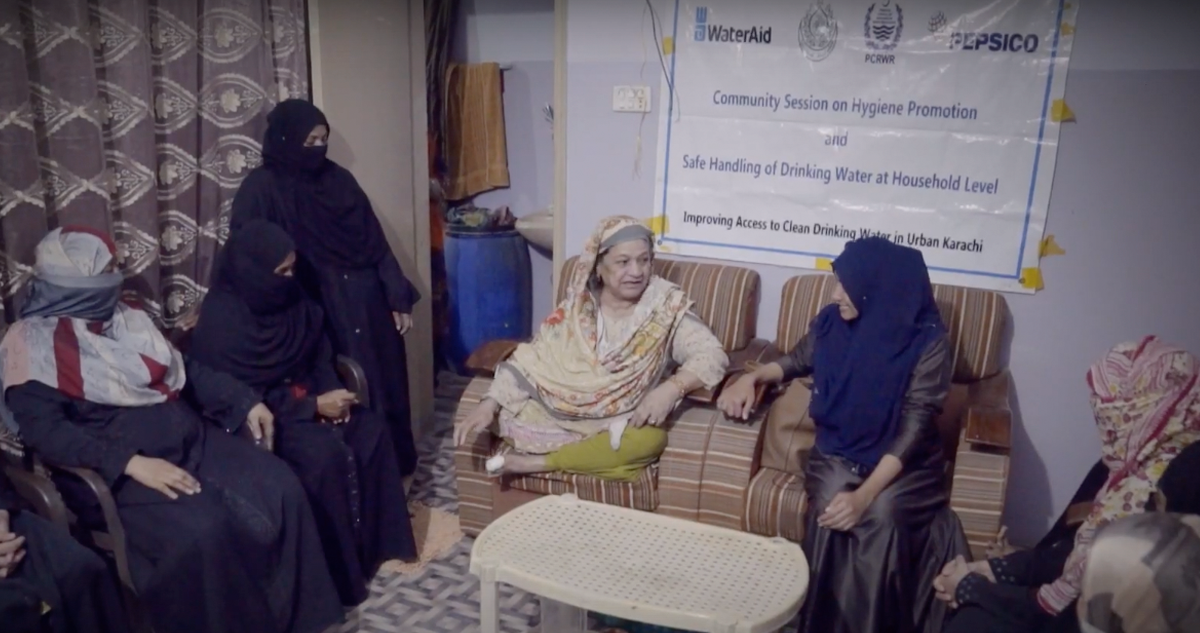
For hundreds of women in the water stressed community,
even the promise of installing the plant was a huge sign of hope.
With PepsiCo and WaterAid’s supportive intervention in the densely and diversely populated area, Sonia and her team had given hope to the people, including children, of a solution. She felt responsible for fulfilling the promise. “As
the technical teams from PepsiCo and WaterAid worked, there was some delay in electricity installation. I was afraid but also hopeful that we will pull through,” added Sonia.
Her belief in the power of her team wasn’t mislaid as the water plant started functioning and serving clean and safe water to the community. It is still providing safe drinking water to over 100,000 residents of the area, including three
educational institutions that have been linked to it. The filtration plant became an integral part of the community and has brought together a diverse population.
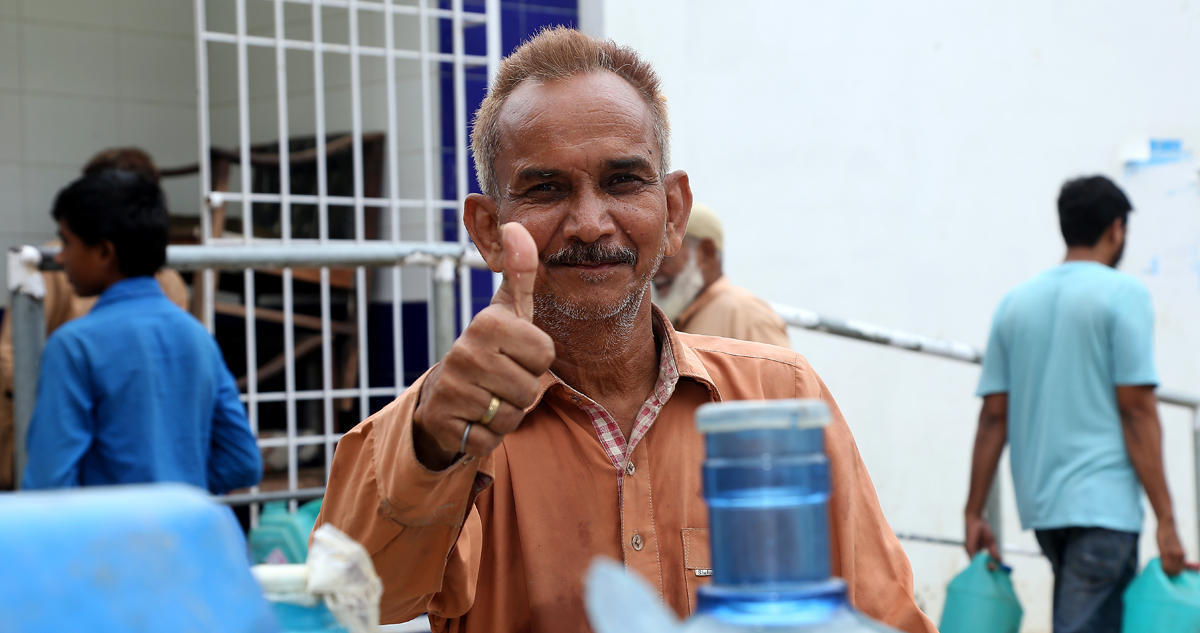
Men, women, children and differently abled people are all benefitting from the RO plant.
The people now have easy access to different water dispensing points serving filtered water via the filtration plant, established in central locations which give residents easy and quick access to filtered water. With no need to travel far to
get water, the people of Pak Colony, including the children, can get on with living full lives.
“It has brought a newfound joy in people’s lives,” Sonia reported. “We have the adults taking care of the plant through the Water Users Committees comprising of people who live in the community. As for children, we now
go to the schools in the area that are benefitting from clean water connections from the plant and conduct WASH sessions with students.”
Three educational institutions in Pak Colony, Karachi, have been linked with the water filtration plant in the community: KMC Boys and Girls Secondary School Yasin Zubairi, Government Boys Secondary School Hasrat Mohani Campus, and Government
Girls College.
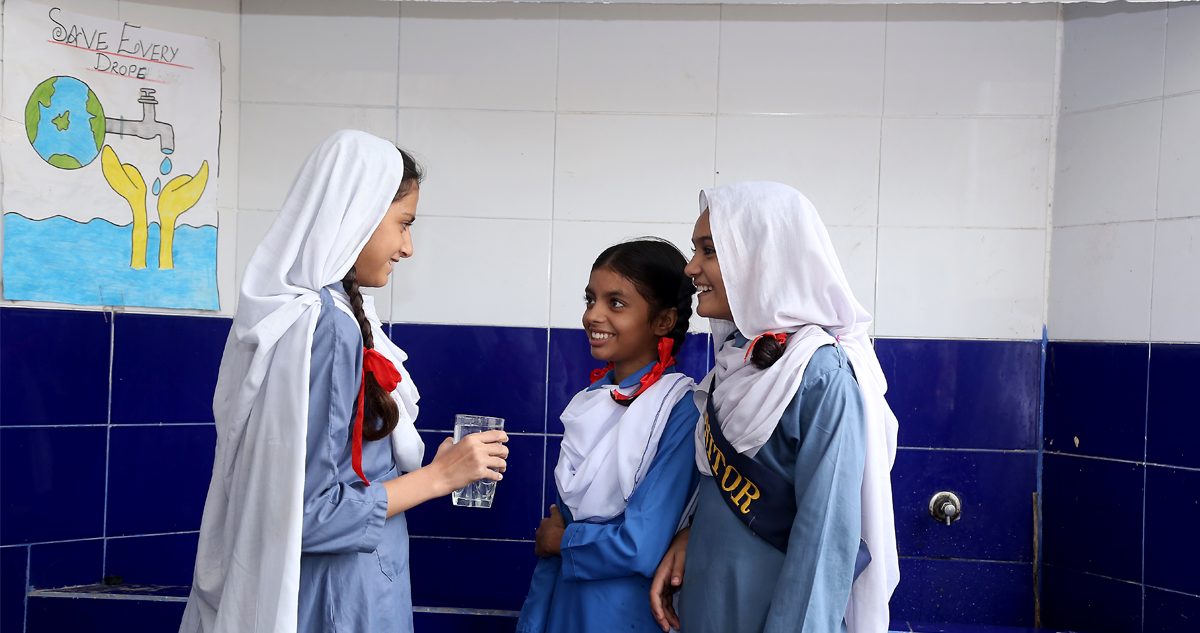
Plenty of fresh and clean water for young learners at 3 Pak Colony schools.
Children studying in these institutions now have plenty of clean and safe water to drink and their teachers no longer worry about students dropping out or getting sick, hence focusing on their one mission in life: to seek knowledge and achieve
their dreams.
Water brings Life
Sonia, who has a master’s degree in mass communication, is proud of the children she has worked with during this project. “We made WASH clubs to empower students. They take care of the water points on campus and teach other students
to do the same. We conducted awareness activities through art, crafts, and play, and planted trees and plants. Since there was no safe water to drink before, there wasn’t any to grow any plants either. Now each child takes care of a
plant each, and waters it. There’s a new sense of ownership and hope among the people of the community.”
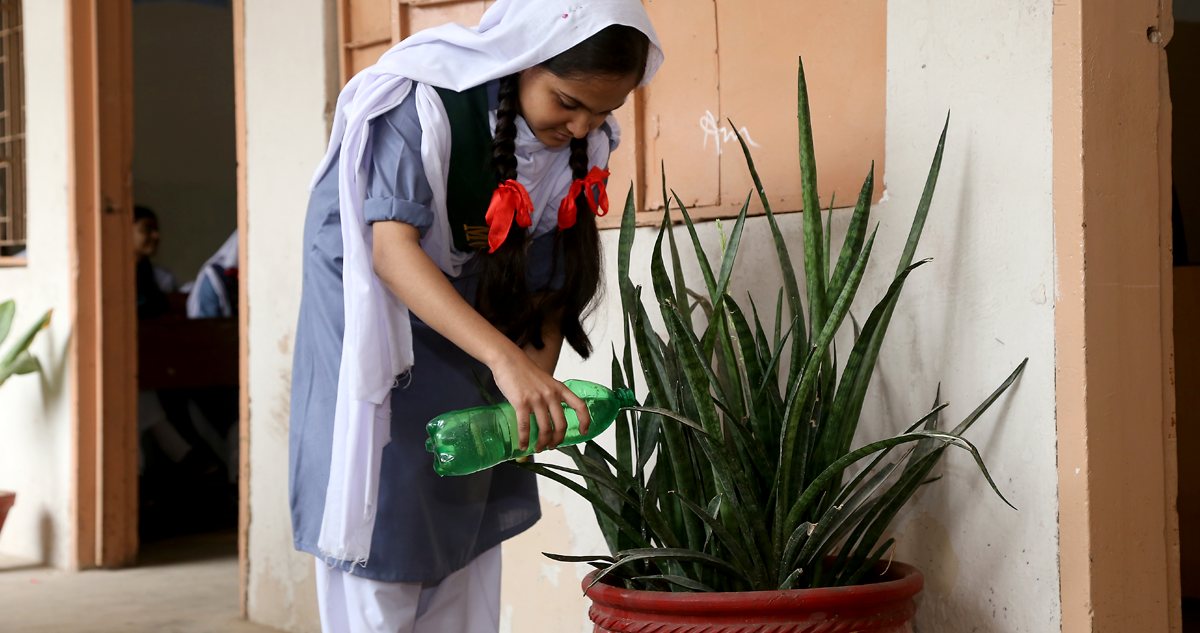
The fresh, clean and plentiful water from the RO water filtration plant is nurturing more than one forms of life.
As for Sonia herself, the arduous one year long journey of working with this project reminded her of people’s innate ability to do good. “I was supported by my family throughout my life to do good for others by using my talent and
knowledge, and I have done that. Being involved in this project helped me help even more people, thanks to PepsiCo,” she shared, while also disclosing that the project started for her just 13 days before her wedding! She worked daily
through this period, and on the morning after her wedding day, she was back at the job, walking great distances within the community to do her research, data collection, interviews and more along with her team.
“I told my husband that this is my mission, and I will not give it up, and he thankfully agreed that I shouldn’t,” Sonia added joyfully.
Through PepsiCo’s vision to champion interventions such as these and empowering homegrown heroes, Sonia can now proudly say that she has been able to help 100,000+ people. The hope remains that this goodness will only grow further.